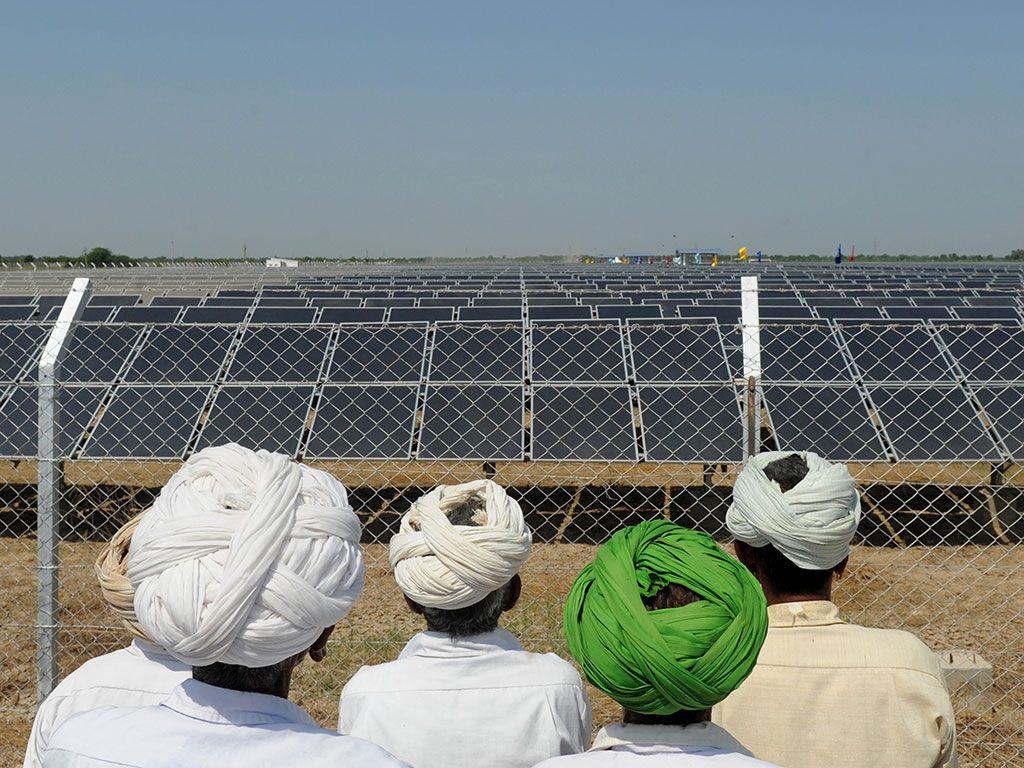The US attacks India’s solar programme
Following a complaint from the US, the WTO has ruled India’s solar energy mission discriminates against international competitors

Villagers look at a solar farm in Gunthawada, India. Plans to install many more such solar panels have been attacked as unfair by the US due to a stipulation that any solar cells used must be manufactured in India
Following a complaint from the US, the World Trade Organization (WTO) has ruled against India’s National Solar Mission. Claimed to be part of the country’s bid to meet its United Nations Framework Convention on Climate Change, the plan is for India blanket its country in solar panels. However, the WTO took issue with one aspect of the programme’s plan: its stipulation that Indian-produced solar cells should be used.
Carefully planned protectionism has often been the precursor to industrialisation
This should not, however, be seen as an attack by the US on the solar industry or some sort of attempt to sabotage climate change commitments. The US complaint was that India’s solar programme discriminates against international solar energy manufacturers. This is against the principles of the WTO, of which India is a signatory.
Excluding non-Indian-made solar cells would hinder the programme anyway, as it would mean – protected from outside competition – Indian solar cell producers would be able to produce the parts less efficiently or charge higher prices. The result of this would be to make turning India into a solar-energy powerhouse even more expensive and, by extension, the energy created would cost more – which would, in turn, have repercussions for Indian consumers and any Indian business making use of that energy.
However, favouring Indian-produced components would benefit India in terms of allowing its manufacturers to work under protected conditions, providing a boost to India’s domestic industrial sector. There is a sound argument in this, as India, along with many other developing nations, needs to foster its industrial sector. Indeed, carefully planned protectionism has often been the precursor to industrialisation – South Korea and Taiwan are the best examples.
The US also engages in protectionism, so India will probably launch a counter-complaint. The WTO ruling is negative for Indian solar manufacturers – and perhaps by extension the overall health of the Indian economy – but it isn’t necessarily detrimental to India’s hope to build its solar energy capacity. If anything, importing better- and cheaper-made US-manufactured cells – or at least exposing Indian producers to international competition – would result in cheaper and more efficient solar energy production. However, if the priority was to provide a boom to Indian industrial growth over any pie-in-the-sky environmental commitments, that would not be unreasonable on India’s part.













